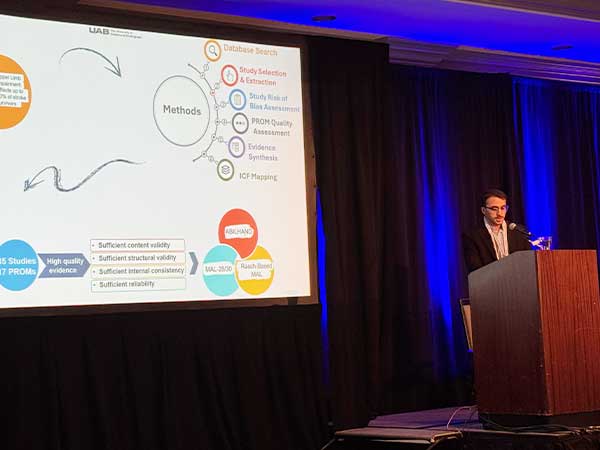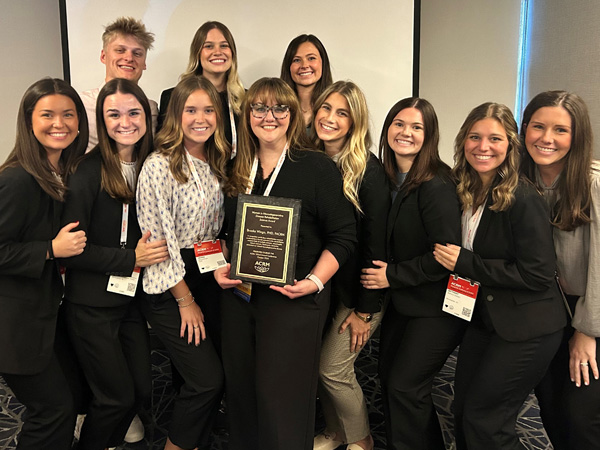Rachel Ashcraft, licensed occupational therapist and TBRI practitioner, gave a seminar presentation on April 21 titled “A Case for Trauma Informed Care Across Healthcare Settings.”
Ashcraft, whose scholarly and clinical work primarily centers around trauma-informed policies, research and practice, founded the nonprofit Foster the Future of Alabama with the mission of reducing healthcare inequities.
“The deal is what’s unwritten, what’s in the notes, what’s not in the medical charts is we all bring with us – we all have stories, we all have baggage,” she said. “We know this. That’s not new information. But we do forget it. This is what I want you to bring from today: we cannot afford to forget this, and we’ve got to do better in the way we engage in our healthcare systems.”
Ashcraft discussed multiple models used for identifying and addressing forms of trauma that vary in types and depths. She added that the newfound attention to this aspect of healthcare means the more researchers are learning about trauma informed, the more they realize they don’t know.
In her presentation, Ashcraft explained the different types of trauma-informed models used and said there’s no consensus on which to use, but regardless of the model, the key is to have a more wholistic approach to healthcare.
The Substance Abuse and Mental Health Administration’s model, Ashcraft’s preferred approach, utilizes six principles to be qualify as trauma-informed care: safety; trustworthiness; peer support; empowerment, voice and choice, collaboration and mutuality; and cultural, historical and gender issues.
To illustrate a more relatable situation, Ashcraft walked through a patient’s interaction with a healthcare provider. Throughout the presentation, Ashcraft used different trauma-informed models, pointing out factors that made the interaction more nuanced than the fictional situation showed at first glance in the patient’s chart and notes.
Each time the patient or provider was revealed to have some form of a trauma, the seminar’s attendees were asked to put a sticker. Or metaphorical rock, in a suitcase. By the end, the attendees’ suitcases were filled, regardless of the character attendees chose to follow.
“Trauma informed is a paradigm shift from thinking what’s wrong with a person to what happened to that person,” Ashcraft said.
The next seminar presentation will feature Dr. Madeleine Hackney of Emory University’s School of Medicine on May 12 with a presentation titled “The Application of Dance for Rehabilitation of Neurodegenerative Disease and Geriatric Conditions.” The following seminar will feature Dr. Justin Laferrier of the department of physical therapy at the University of Rhode Island with a discussion titled “The Benefits of Adaptive Sports” on Thursday, May 19.

